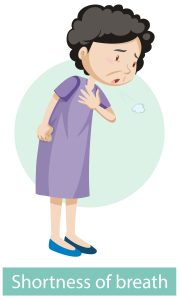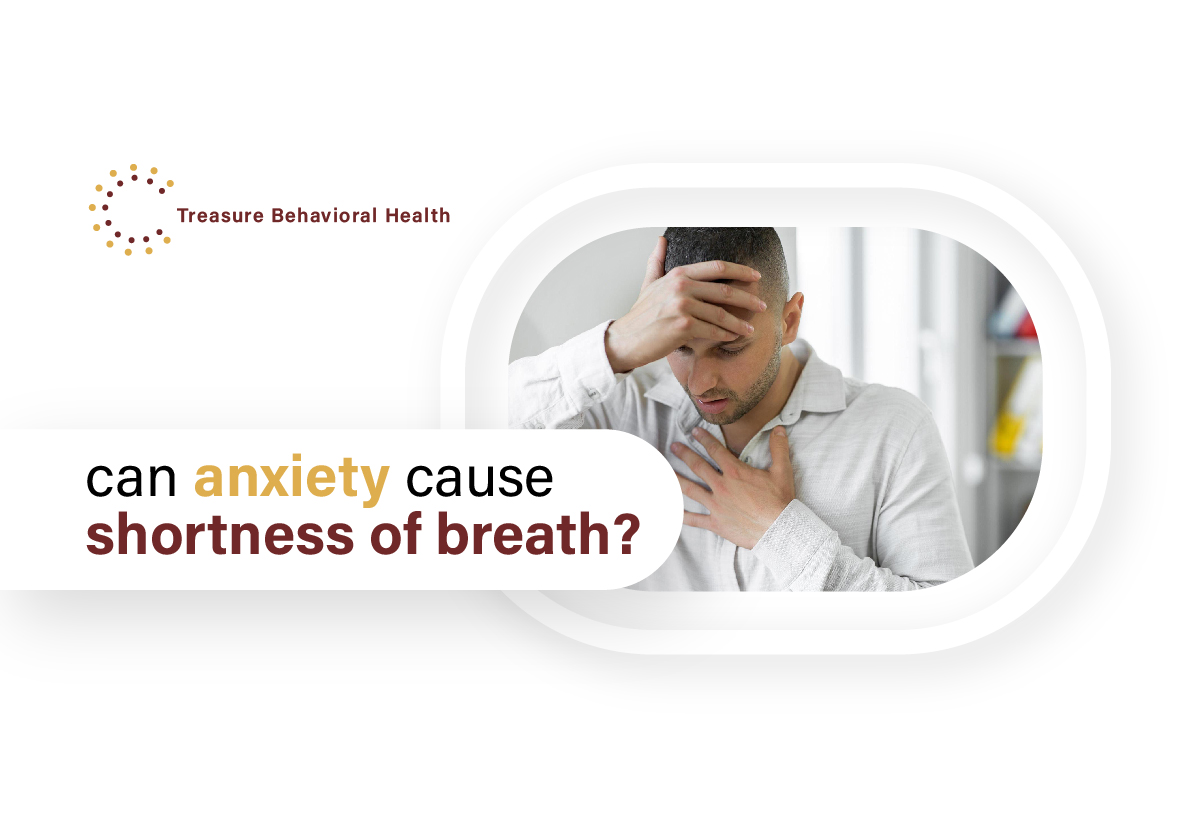Can anxiety cause shortness of breath? Let’s dive in and find the facts about it.
Anxiety symptoms frequently include shortness of breath. Certain situations can cause anxiety, resulting in shortness of breath.
Shortness of breath can also cause stress and depression.
When they notice an anxiety symptom, they may believe they have a breathing or heart problem.
Are you exhausted from the anxiety and want to get rid of it? If so, Dr. Roberta Iyamu at Treasure Behavioral Health will understand your concern.
She’ll listen to your issue without being mean and find out the solution to eliminate the anxiety.
Anxiety And Shortness of Breath
Certain situations can cause anxiety, resulting in shortness of breath. Feeling short of breath can also raise anxiety.
When they notice an anxiety symptom, they may believe they have a breathing or heart problem.
A therapist will teach you relaxation techniques that can immediately relieve anxiety or shortness of breath. These techniques include:
- Diaphragmatic breathing
- Gradually relaxing muscles
- Guided imagery
- Reassuring self-talk
Contact us to opt for the appropriate treatment options for anxiety.
Manual Breathing Anxiety
Irregular breathing can worsen anxiety, resulting in a vicious cycle. Manual breathing techniques involve consciously controlling one’s breathing. They help to break the cycle by regulating breathing patterns and activating the body’s relaxation response.
Your brain and body are hardwired to respond instantly to stress, which is controlled by the sympathetic branch of your autonomic nervous system.
When you are scared or anxious, a rapid series of hormonal changes and physical responses prepare you to flee or fight.
Our ancestors required this response to survive. When you are stressed or anxious, your body responds with the same chemical and physical changes. It is a natural process designed to keep you safe from harm.
Anxiety Breathlessness Symptoms
Shortness of breath is one of the symptoms of anxiety, but not everyone suffers from it.
Anxiety can lead to a variety of physical and psychological symptoms, including:
Anxiety can cause a range of physical and psychological symptoms, including:
- Dry mouth
- An increased heart rate
- Dizziness
- Sweating
- Chills
- Nausea
- Diarrhea
- Shaking
- Muscle tension
Can Stress and Anxiety Cause Breathing Problems?

Can anxiety give you shortness of breath? Yes, it can cause shortness of breath to some extent.
If you’ve been having trouble breathing lately, it could be due to anxiety.
With everything going on in the world, it would be difficult for any of us to maintain a sense of calm. If you have shortness of breath, it could be your body’s natural response to stress.
Everyone’s anxiety manifests differently. Your shortness of breath may be accompanied by waves of intense fear that last 10 to 30 minutes. It may also turn on and off during the day.
Panic Attacks and Breathing Problems
If you’ve been having trouble breathing lately, it could be due to anxiety.
During a panic attack, you may sweat profusely, have difficulty breathing, and feel your heart racing. You may experience symptoms similar to a heart attack.
Anxiety symptoms may include shortness of breath, a desire for air, and a sense of smothering. As a result, feeling short of breath can exacerbate your anxiety.
Shortness of breath can occur before or during a panic attack.
Some people find it helpful to count from 1 to 5 on each inhale and exhale.
Can Anxiety Cause Shortness of Breath-Learn How?
If you’ve been having trouble breathing lately, it could be due to anxiety.
People who experience shortness of breath as a result of anxiety or panic may become even more anxious, which can exacerbate their breathing.
Doctors frequently recommend relaxation techniques and diaphragmatic breathing to alleviate these and other anxiety symptoms.
Some people benefit from taking medications temporarily to alleviate their anxiety symptoms. Chronic anxiety and panic may necessitate a combination of medication and psychotherapy.
Tips to Get Rid of Shortness of Breath
If you’ve been having trouble breathing lately, it could be due to anxiety.
How to Practice Diaphragmatic Breathing:
- Sit or lie comfortably on a flat surface, such as your bed, with your head supported.
- Place one hand on the upper part of the chest and the other next to the rib cage. This will help you feel your diaphragm more as you breathe.
- Slowly breathe in through your nose, allowing your stomach to move out against your hand.
- Tighten stomach muscles. Allow them to fall inward as you exhale through your nose or mouth (whichever is most comfortable for you).
- Take deep breaths, allowing your stomach to rise and fall.
Conclusion
If you’ve been having trouble breathing lately, it could be due to anxiety.
Although panic attacks can be terrifying at the moment, especially when your breathing is disrupted, keep in mind that they are not life-threatening.
However, chronic high levels of stress and anxiety can be extremely harmful to the condition of your whole body.
You must prioritize obtaining appropriate treatment for your panic attacks and consult with your doctor about any breathing problems.
FAQs
How do you get free from shortness of breath and nervousness?
Slowing your breathing so that you’re essentially breathing a bit less speedily can be a big help.
Can overthinking cause shortness of breath?
Anxiety can both cause and worsen shortness of breath. Signs of stress can include sense short of breath, air starvation, and a suffocative feeling. In turn, feeling short of breath can also surge your anxiety.
Does breathing anxiety go away?
Also, if anxiety is, in fact, the cause of your smallness of breath, it should be short-term and determined once the stressor drives apart.


No comment